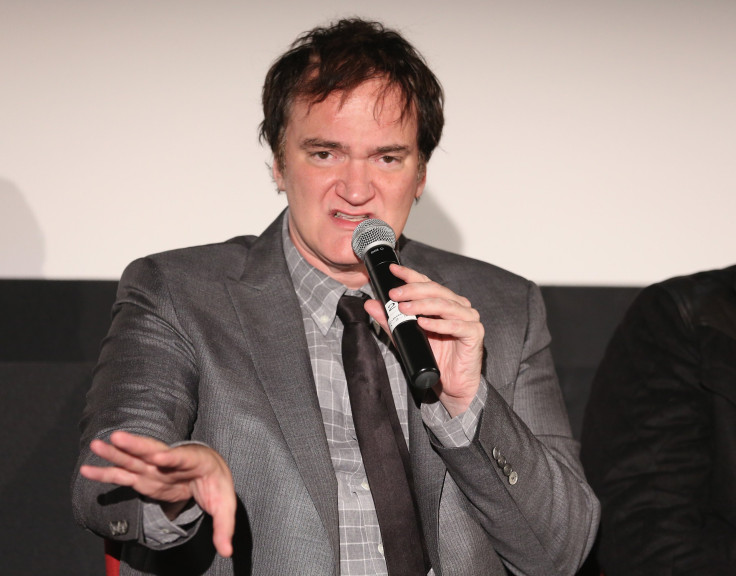'Hateful Eight' Director Quentin Tarantino Reveals The Harsh Line He Cut From The Movie And Why

Quentin Tarantino is not a man who censors himself very often, which is apparent from the vulgarity, violence and utter brutality of most of his movies. That’s why it was so surprising when the famed director recently confessed that he made the call to cut a line out of his newest movie, “The Hateful Eight,” because it inadvertently went too far.
The 52-year-old director revealed that he cut a scene in which the dialogue discussed racial violence once a real-life news story broke that put it in a context that was too grim even for the “Pulp Fiction” director. The film, which focuses on a group of strangers riding out a storm together in post-Civil War America, contains several characters with different opinions on the end of slavery and the way the war was fought.
One character, Chris Mannix (Walton Goggins) goes on a rant about race relations that ends by saying: “When n-----s are scared, that’s when white folks are safe” (via The Hollywood Reporter).
According to the Telegraph, Tarantino's original line from the movie had Mannix discuss his brutal attacks on black people in South Carolina. The line, with the same sentiment, was supposed to be delivered as such:
“You ask the white folks in South Carolina if they feel safe.”
While it’s a footnote compared to some of the other racially charged dialogue the movie contains, Tarantino says the Charleston church shooting broke just before he made the call to remove the line from the movie. The director confessed that he felt the line now carried an unintended connotation.
“But then, as we were making it, as the events of the last year and a half just kept happening, the movie became more relevant than we ever could have imagined,” he said.
The director, who has recently been in hot water over the issue of police brutality as well, went on to say he was pleased to see the news affected more than his line of dialogue in the movie. As Entertainment Weekly notes, he pointed to the recent movement against the Confederate flag in the South as a prime example of the racial awakening that’s happened in the United States in the past year or so.
© Copyright IBTimes 2025. All rights reserved.






















